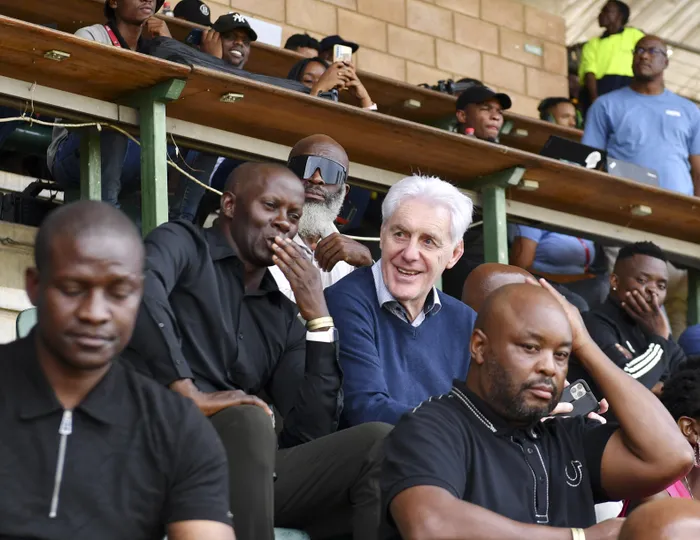
Teboho Mokoena celebrates after scoring a goal Teboho Mokoena celebrates after scoring a goal during Bafana Bafana’s Africa Cup of Nations round of 16 football match against Morocco. | AFP
Image: Sia Kambou/AFP
In a developing narrative that has caught the attention of football enthusiasts and pundits alike, FIFA is now formally probing the South African national football team, Bafana Bafana, in relation to Teboho Mokoena's eligibility during a pivotal World Cup qualifying match.
This situation, dubbed ‘Mokoena-gate,’ revolves around a critical administrative blunder by Bafana team manager Vincent Tseka, that has raised concerns throughout the region and altered the landscape of African qualifying.
It's essential to note that FIFA has not received a formal protest regarding the match in which Mokoena participated, mainly because Lesotho officials were unaware of his suspension on the day of the game and missed the 48-hour post match deadline.
The yellow cards that triggered Mokoena's ban were issued during qualifiers against Benin on November 18, 2023 and Zimbabwe on June 11, 2024.

Hugo Broos Hugo Broos, along with his assistant, former Bafana winger Helman Mkhalele, have overseen a phenomenal change of fortunes during the past three years. Photo: BackpagePix
Image: BackpagePix
The saga unfolded after Bafana's victory over Lesotho on March 21, 2025, where Mokoena played an integral role in securing a 2-0 win.
However, South Africa’s football authorities were unaware that Mokoena was supposed to be serving a one-match suspension for the prior cards he received in matches against Benin and Zimbabwe.
If FIFA approaches this situation with the same rigidity it applies to routine protests, it risks undermining the credibility of its own procedures. The governing body needs to adopt a nuanced perspective that takes into account the unique details and evidence of each case.
Both analysts and fans are emphasising the need for transparency and fairness in FIFA’s investigation methods.
This is crucial not only for upholding the integrity of the sport but also for safeguarding FIFA’s reputation in the international sports governance arena. The eyes of the world are upon them, and the decisions made in this case could establish a precedent for future inquiries.
As a result, the South African Football Association (SAFA) has found itself subject to scrutiny, facing repercussions from this administrative misstep, which could lead to penalties at a pivotal moment in the qualifying matches.
Reports indicate that Nigeria and Benin have expressed their frustration regarding this situation. They are advocating for a points deduction for Bafana, believing it would improve their chances of qualifying for the 2026 World Cup.
It’s noteworthy that the official complaint lodged with FIFA seems to be a last-ditch effort coming almost two years after the first yellow card, sparking further debate over the legitimacy and timing of such claims.
This investigation has garnered significant attention, not only because of its implications for Bafana but also in the broader context of African football.
Currently, Bafana leads Group C with 17 points from eight qualifying matches, followed closely by Benin with 14 points and Nigeria with 11.
However, if FIFA rules against South Africa as a result of this investigation, the dynamics of Group C could shift dramatically, potentially jeopardising its chances of a World Cup appearance since hosting the tournament in 2010.
Related Topics: